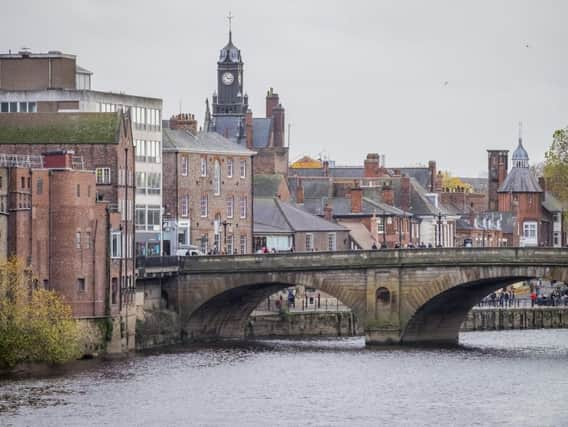Environment Agency calls for hosepipe ban after rivers 'dwindle'


Several groups have written to the Environment Agency's chief executive, Sir James Bevan, warning that dwindling rivers are putting wildlife at risk following last summer's heatwave and a dry winter.
They urged him to force water companies to implement "restrictions and temporary use bans" now rather than wait for further damage to be done.
Advertisement
Hide AdAdvertisement
Hide AdHowever, an Environment Agency spokesman said a hosepipe ban would be premature as the problem is not at a "critical level", adding that plans are in place if the dry weather continues.
The letter, signed by 12 wildlife, conservation and angling groups, claimed all South East rivers are "below or severely below" normal levels, pointing to a record low in the Cam in Cambridge and a 55% drop in Hertfordshire's Beane since 2013.
"Surely it makes more sense to prepare the public for potential shortages, in order to encourage demand reductions, rather than to encourage complacency," they wrote.
It comes after water companies told Sir James on Tuesday that they might need to "take more water than usual" from rivers and boreholes, but did not foresee a hosepipe ban this summer.
Advertisement
Hide AdAdvertisement
Hide AdThe EA spokesman said it expects water companies to introduce hosepipe bans before applying for drought permits, which enable them to remove water from the environment.
However, he confirmed that applying for a permit before tapping local resources is an expected protocol, rather than a mandatory requirement.
"There is enough water for all if water resources are managed properly, and we have agreed with water companies to sustain our efforts to ensure people and the environment continue to get the water they need," he added.
One of the campaign groups, the Angling Trust, warned that trout, dace, chub and roach were most at risk from low water levels, while there were also long-term threats to kingfishers, grebes and other fish-eating birds.
Advertisement
Hide AdAdvertisement
Hide Ad"Without urgent action now to reduce water use, many of our streams will dry up and die," said the trust's chief policy adviser, Martin Salter.
Other groups also lobbying Sir James include Herts & Middlesex Wildlife Trust, Berkshire, Buckinghamshire and Oxfordshire Wildlife Trust, and the Wild Trout Trust.